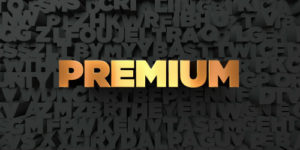There may come a time in your career when you’re ready for a change. Obvious challenges are present when making a career change, and none are more evident than trying to write resumes that get you hired. Some of your skills may transfer over to your new career, but many of them won’t. Your main goal should be to discuss in your resume which skills you can use from your previous career, as well as why you want to make the career change in the first place. Employers will have plenty of questions for you, but writing an effective resume can answer a few of them. Here are some tips to consider when writing a career changing resume.
Discuss Transferable Skills
Every company wants new employees to have a solid mix of technical skills as well as soft skills. Depending on the nature of your career change, some of your technical skills may not transfer over well. Instead, executive resume writing services may suggest focusing on soft skills like your personality, work ethic, leadership, communication and more. Strong soft skills are transferable to almost any profession, so clearly showing your strongest skills backed by examples will make the most significant impact.
Target The Company
The key to writing an effective resume is targeting the specific company you’re applying for and demonstrating your understanding of their needs. The same is true even if you’re going through a career change. While you may not have the hard skills listed in their job requirements right now, if you have a complete understanding of what the company’s overall needs and goals are, you can shift your resume to target those aspects. Using examples from past experiences to show how you helped previous companies meet their goals will show your track record of success. And when you show an understanding of the company’s goals, they’ll be more impressed that you’ve done your homework and will then know you’re serious about the career change.
Demonstrate Your Passion For The Career Change
Employers today don’t necessarily like taking chances on candidates. They would rather hire someone with the exact experience they desire in their industry. That’s why executive resume writing services will suggest writing your resume to show a clear passion for what you want to accomplish with your career change. Demonstrate how thoroughly you thought the career change through and why the position is exactly what you’re looking for. Employers will look for any reason to not hire a person in your position, but when you show your passion on paper, they’ll be more likely to at least give you the opportunity to interview.
Professional Resume Services knows how difficult it is to change careers. However, when you put forth the effort to write resumes that get you hired, the result is well worth the time and energy. Your resume always needs to be perfect regardless of the situation, and everything is magnified when you’re changing careers. Writing a career changing resume is tricky, so don’t hesitate to contact us if you need help getting started.
One of the questions every interviewer will ask their interviewee revolves around their short-term and long-term goals, even if you state this information in your executive resume biography. But even when you know the question is coming, it’s still sometimes difficult to clearly communicate what your goals actually are. Your interviewer is likely looking for some key points in your answer, such as your intentions, commitment and ambition level. Their reason with asking the question is to determine whether you are the right fit for the goals they have planned for you. Here are some tips for answering this common question.
Tell The Interviewer Your Current Situation
You may have heard before that you have to remember where you’ve been to know where you want to go. The top resume writing services always recommend being as genuine as possible in an interview setting, even if you’re not necessarily where you want to be in your career. But instead of making it sound negative, reinforce the fact that you know what you’ve done in the past isn’t satisfactory and you’re looking for more growth as a professional.
Explain How You’re Working To Reach Your Goals
It’s easy to talk about wanting to advance in your career, but it’s another thing to do the work to prove it. Your executive resume biography may indicate some of this, but tell your interviewer what you’re doing right now to help you reach your short-term and long-term goals. This could be getting more education, certifications, working on side projects and more. Having your goals tied to actions will demonstrate how serious you are about reaching them.
Tie Your Answer To The Job Description
You have to also remember to consider the job description when answering the question, like you do when writing a professional resume. Talking about your personal goals is a breeze, but it means nothing unless the interviewer knows how they relate to the job opening. To do this, look through the job description and find some of the important responsibilities required. Then think about the skills you bring to the table to be able to handle those responsibilities now and in the future. If you don’t quite have all of the skills for the highest levels of responsibility right now, you can talk about how those skills are in your long-term plans and how you’re working toward achieving them.
A Little Uncertainty Is Acceptable
Being honest is always the best way to answer an interview question. If you’re uncertain about any aspect of your goals, including what they are or how you’ll get there, don’t just make up an answer that sounds good. You should have at least a general idea of some short-term goals you have, so as long as you can communicate those clearly, the interviewer likely won’t penalize you if they are on track with what they are looking for.
Professional Resume Services is one of the top resume writing services for many reasons. We focus on much more than simply writing resumes. We want to coach and guide you through every aspect of the job search process as much as we can. And because of this, we will take the time to understand your specific goals to better prepare you for interview questions along the way. Feel free to reach out to us at any time for some guidance with your job search.
There are two types of job seekers today: those who think cover letters are somewhat fun to write, and those who think they are a complete waste of time. Regardless of where your feelings are, cover letters for your resume are more important today than ever before. Like resumes, you can’t be too general in your cover letter or the reader will see right through you. By doing a little research on the company you’re interested in, you can create a targeted cover letter to get recognized. Here are some of the top do’s and don’ts when crafting yours.
Don’t Rewrite Your Resume
Too many people make the mistake of thinking their executive resume cover letter should simply be a summary of their resume. The hiring manager already has your resume, so it’s a waste of time to simply rewrite it. Instead, take advantage of the opportunity to demonstrate your understanding of the company’s needs and follow it immediately with how you can meet those needs. Your language in your cover letter doesn’t necessarily have to be as formal as the resume, but it shouldn’t be as informal as something like your LinkedIn profile.
Don’t Create A Generic Cover Letter
Hiring managers will be able to easily see if you’ve reused your executive resume cover letter. They are looking for your specific skills as well as how you think they fit into what they need. If you just make general statements about how companies today need what you have to offer, there’s a higher chance of your cover letter and resume getting tossed to the side and never really considered.
Choose A Few Skills To Match The Job Requirements
While you may have an abundance of skills, a hiring manager would rather see just a few of them on your cover letter. In fact, any cover letter writing service will suggest taking just a few of your skills to focus on and clearly show why those skills will help the company. Those should be the most important skills to you and the company, and you can always talk about your other skills during the interview process.
Be Personal
One of the most important aspects of an executive resume cover letter that often gets overlooked is the personalization factor. With the amount of information we have available to us today, you should be able to find a name to address your cover letter to. And if all of your searches come up empty, it usually never hurts to give the company a call and ask the receptionist for the name of their hiring manager.
Professional Resume Services is a cover letter writing service that also focuses extensively on resumes, LinkedIn and many other aspects of job searches today. Cover letters have never been more important, so crafting the perfect one will give your job hunt a nice boost. We understand it’s not always quick and easy to write a cover letter, so feel free to contact us if you need assistance with yours.
The most basic piece of advice to consider with your executive resume cover letter is to make the greeting personal. The generic greeting of “To Whom It May Concern” is no longer an acceptable way to begin your cover letter, as it’s too impersonal. With the information we have available to us today, a little effort in finding the right person to address it to will go a long way in making your cover letter stand out in a good way. So how can you find out who to address your cover letter to when the recipient isn’t obvious? Here are some tips to consider.
Search For The Email Address
Most of the time a job listing will include an email address to send your cover letter and resume to. The name in the email address may not include both the first name and last name, but usually will at least include the last name. Do a quick Google search for the name in the email address, along with the company name. You may find the biography of the person on the company’s website, or at least give you a lead on how to conduct further searching. If all else fails, a cover letter writing service may be able to help you identify key information in the job posting to help lead you to the right person.
Utilize LinkedIn Creatively
Many hiring managers today will post job openings on LinkedIn. If you found the posting on LinkedIn, then take a look to see if the post was made by an individual or by the company’s profile. Address your executive resume cover letter to that person if it’s clear who posted it. If it’s not clear, then you can take a look at the company’s LinkedIn profile and see if any employees are listed. Doing this research on LinkedIn will help you write targeted resumes and cover letters to increase your chances of getting recognized.
Give The Company A Call
When you’ve exhausted all of your resources and simply cannot figure out who to address your cover letter to, feel free to give the company’s main phone number a call. Or if the company is nearby, drop by the office and ask the receptionist for a business card of the hiring manager. As long as you’re not pushy or over-aggressive and are truthful with why you’re requesting the information, you may be surprised at how willing they are to give you at least the hiring manager’s name.
Professional Resume Services is more than just a resume and cover letter writing service. We take pride in helping every client we work with, and always take the time to understand their specific needs, concerns and desires. Too many executives make the mistake of brushing off their cover letter, but the truth is resumes and cover letters carry equal importance. To learn more about how we can help you in every aspect of your job search, feel free to reach out to us at any time.
When you work hard to optimize your LinkedIn profile, it’s only natural to consider whether you should upgrade to the premium version to take full advantage of the benefits. Depending on where you’re at in your job search, LinkedIn Premium could be exactly what you need and the expense could be well worth it. But still, knowing exactly what you’re getting from the membership ahead of time will confirm you’re making the right decision. Here is some information many LinkedIn profile writing services suggest taking into consideration before upgrading.
Two Main Features LinkedIn Premium Offers
There are four different levels of LinkedIn Premium at different price points. The two constant features across all levels is the ability to contact with anyone using LinkedIn InMail messages, and the ability to see who has viewed your profile in the past 90 days. The InMail feature is convenient since you don’t have to be connected with someone in order to send them a message. This feature itself makes networking much easier. And with the ability to see who has visited your profile in the last 90 days, rather than just the last five viewers with the standard LinkedIn version, you will always know who is interested in you.
Take Advantage of The Free Trial
Almost every executive LinkedIn profile writer will suggest taking advantage of the free trial of the premium version you’re interested in. This trial lasts 30 days, so be sure to take advantage of each day. Explore all of the various features and make note of the advantages it provides. If needed, you can work with LinkedIn profile writing services to help you decipher the main differences and gauge whether the value is worth the price point of upgrading.
No Long-Term Commitment
The best part about any of the LinkedIn Premium levels is the commitment is only month-to-month. So if you optimize your LinkedIn profile during the free trial and don’t see much value in return, then you can go back to the basic version with no obligations. In fact, many LinkedIn profile writing services work with executives who upgrade to a premium version for just a couple of months to build up their connections, or even land a new job, and then revert back to the basic version. Everyone sees different value when using LinkedIn, so you can determine its value after using it for a while.
Professional Resume Services offers LinkedIn profile writing services because we understand how important the platform is for job searching. We always recommend taking advantage of the free trial period offered and determining its value after that. Feel free to ask your executive LinkedIn profile writer as many questions as you can as well, and they will give you the facts and opinions based on their experience. And never hesitate to contact us if you have any questions about LinkedIn or anything related to your job search.
LinkedIn is a platform you can use for many different aspects of your career. One of the most important ways to use it is when you’re on the hunt for a new job. Whether you just created a new executive LinkedIn profile or you’ve had one for years, you need to make sure it’s updated and optimized for your job search. As much as your profile can help you, it can hurt you just as quickly if you don’t display the right information. Here are some tips to consider before you actively begin your job search.
Optimize Every Section For SEO
Recruiters and hiring managers have certain keywords and phrases they search for online. Knowing which words those are takes a little effort and research on your part, but you’ll have to do that anyway if you have a fully targeted resume. Any professional LinkedIn profile writer will suggest optimizing every section for SEO, since you don’t know which section a recruiter will place the most emphasis on. The more relevant keywords you have, the easier it will be for a recruiter to find you.
Balance Personal Branding With Hard Skills
Your executive LinkedIn profile is the perfect place to highlight your personal brand. Sometimes it’s not appropriate to demonstrate your personal brand in your resume, but LinkedIn can be used to build on the resume itself. You can still mention your qualifications and hard skills, while also showing who you are as a person and a professional. Having a balanced LinkedIn profile like this will help differentiate yourself and you’ll have a better chance of piquing the interest of recruiters or hiring managers.
Increase Quality Connections
Part of your LinkedIn profile development should be increasing the amount of quality connections you have. The more connections you have, the more credible you’ll seem. However, randomly asking people to connect with you won’t do any good. Quality connections can come from previous co-workers, classmates, people you’ve met at networking events or even people from common LinkedIn groups you’re involved with.
Be Active
Most recruiters will look at how active you are on LinkedIn and what your activity entails. Commenting in groups and sharing content are good examples of engaging activities. Not only do these activities demonstrate your interest in certain topics, but they also can show your expertise and leadership, depending on your interactions with the content. You don’t want to be overly active all the time, but commenting and engaging with a few pieces of content daily is just right.
Professional Resume Services understands the importance of LinkedIn profile development in today’s job searching climate. In fact, many employers require applicants to include a link to their LinkedIn profile when they apply for a job, so it’s critical for you to have yours updated and optimized. We have a professional LinkedIn profile writer ready to assist you in this regard, so feel free to reach out to us if your profile is in need of a quality revamp.
Most people have heard the phrase, “it’s not where you start, but where you finish.” This is true in many aspects of life, but when it comes to an executive job search, how you start will have a significant impact on your success. Whether you’ve held one job for several years, are looking to change to a different industry or any other situation, the top resume writing services will caution you to take the time to do your homework before diving in. Here are some of the most important facts you need to know before beginning your job search.
Companies Search For Unique Talent
The competition is very high for executives, so employers know they have the opportunity to be selective. Not only will companies look for candidates with the most experience, but they will also consider the specific value every candidate is unique for. This is where your c-level personal branding enters the picture. Companies need to be able to clearly see what you stand for, what hard skills and soft skills you have and what unique value you bring to the table.
Most Job Openings Are Hidden
If the first step in your job search is to scour the online job boards, you’re making a big mistake. While some of these job postings may be legitimate, it’s hard to separate them from the ones that are outdated or not valid. Plus, with companies receiving hundreds of resumes through online job boards every day, your chances of getting noticed are slim. The best professional executive resume writers always suggest tapping into the hidden job market, which typically involves networking. This could mean attending local events, reaching out to connections on LinkedIn, touching base with past co-workers and more. Most of the top jobs today aren’t advertised, so you have to get your name out to companies of interest in other ways.
Hiring Managers Always Check Social Media
If you’re going to work on your c-level personal branding, the first thing to do is clean up your social media profiles. Every hiring manager is going to look at all of your social media accounts for any potential concerns they may have about you. If hired, you are going to be a direct representation of the company, so they will make sure you will represent them well before even considering you as a candidate.
Professional Resume Services is known as one of the top resume writing services, but we also enjoy providing tips like these to people beginning their job search. A job search today is much different than it was a few years ago, so it’s important for executives to understand the landscape before proceeding. If you ever have any questions about where to begin or how to continue with your searching efforts, don’t hesitate to contact us for advice.
Not too many people looking for a new job have success with blindly sending out their resume to various companies. Companies can receive hundreds of applicants to any given job posting every single day, so they won’t waste their time reading a generic resume. When writing a professional resume today, targeting the specific company you’re submitting your resume to will help yours stand out. A hiring manager will notice and appreciate the homework you’ve done on the company, and they’ll take a closer look at the value you bring to the table. Here are other ways your research of companies will pay off in your job search.
Tap Into The Hidden Job Market
When you have a list of a few companies you’d consider working for, do as much research on them as you possibly can before writing a professional resume. The hidden job market simply means jobs aren’t posted online or anywhere else. Candidates may find out about these jobs at networking events or through other connections. Once you’ve researched the companies of interest, tap into this hidden job market by reaching out to current employees to understand what challenges they face and what value you bring to the table.
Identify The Company’s Challenges
One key to writing resumes that get you hired is identifying the company’s specific challenges, so you can offer a solution. You have to include your hard skills on your resume, but incorporating soft skills is equally as important. The unique aspect about executive resume writing is every word has to offer value to the employer. You have to be able to demonstrate how well you would fit in with the culture, as well as how you can handle day-to-day tasks.
Differentiate Yourself By Offering Unique Value
Any executive resume writing expert will stress the importance of differentiating yourself. One of the best ways to do so is by talking to other higher-level employees at the specific companies you’re targeting. Take note of what they say works well in their organization, as well as what they are working on to improve. Incorporate a mix of those points when writing a professional resume will help yours stand out among the rest.
Professional Resume Services is here to point you in the right direction when it comes to executive resume writing. We take the time to ensure every word on your resume matters, and will go to great lengths to help your resume stand out. If you’re in need of help getting started with researching companies, writing your resume, preparing for an interview or any other step in the job search process, don’t hesitate to reach out to us at any time.








